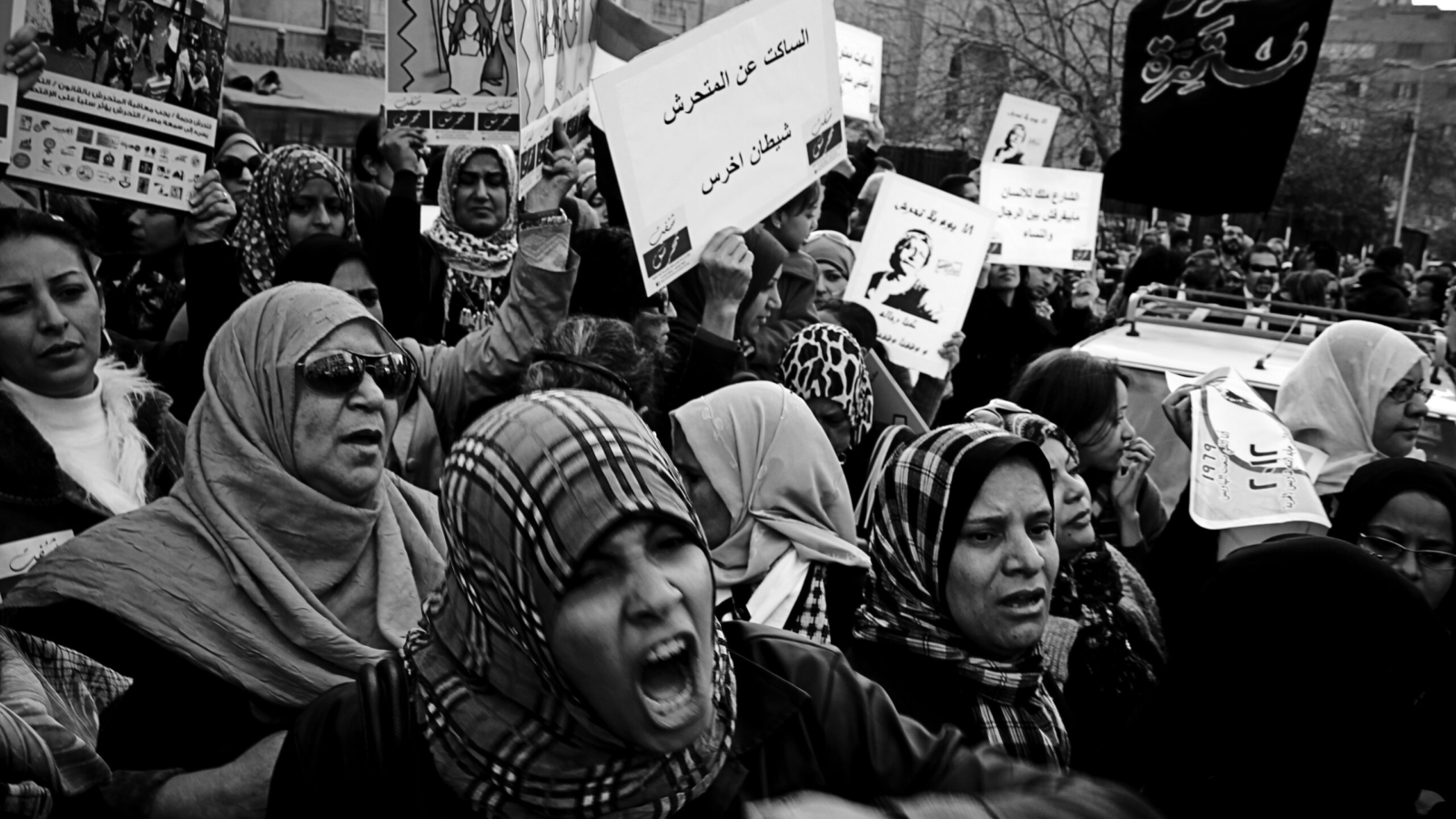Two years after the 2011 revolution in Egypt brought down former president Hosni Mubarak, another wave of protests erupted against his successor, the Muslim Brotherhood’s Mohammed Morsi. This time, the demonstrations were actively supported by the military. As debates raged about whether the protests should be called a coup or a fresh wave of revolution, there was an uptick in mob attacks against women, which had been plaguing Tahrir Square for months. Between June 30 and July 3, 2013, Operation Anti-Sexual Harassment and Assault (OpAntiSH), an Egyptian group dedicated to combating sexual violence, documented 186 such cases. A petition by women’s organizations attributed the spike to the “trend of targeting female activists, to punish them for participating in the public sphere and to exclude them from political life.” With the #MeToo movement sweeping the world, OpAntiSH organizer Yasmin El-Rifae spoke with writer and activist Sarah Leonard about the challenges in fighting for gender equality, and the future of the feminist left.
Sarah Leonard: You wrote an article for The Nation about what the #MeToo movement can learn from the Egyptian revolution. In it, you started off by saying that you were paying attention to #MeToo when it was initially all over Facebook, but that you didn’t immediately feel moved to be part of it. Why do you think you felt that way?
Yasmin El-Rifae: I think part of my first reaction might have had to do simply with fatigue. We were tweeting and posting stuff on social media about harassment and sexual assault in the late 2000s in Egypt, so I found the idea that we were still doing this to be a little discouraging. But also, like I said in my article, there was a lot of outrage when the Harvey Weinstein story first broke, which I found kind of disingenuous. I didn’t like feeling pressured to be part of that. #MeToo became more interesting to me as the way it was being used became more diverse, and as it opened up conversations about consent—and about inclusivity, or lack of it.
* * *
* * *
[Photo courtesy of Gigi Ibrahim]* * *
